Got food scraps? Widespread composting sprouts at Northeastern
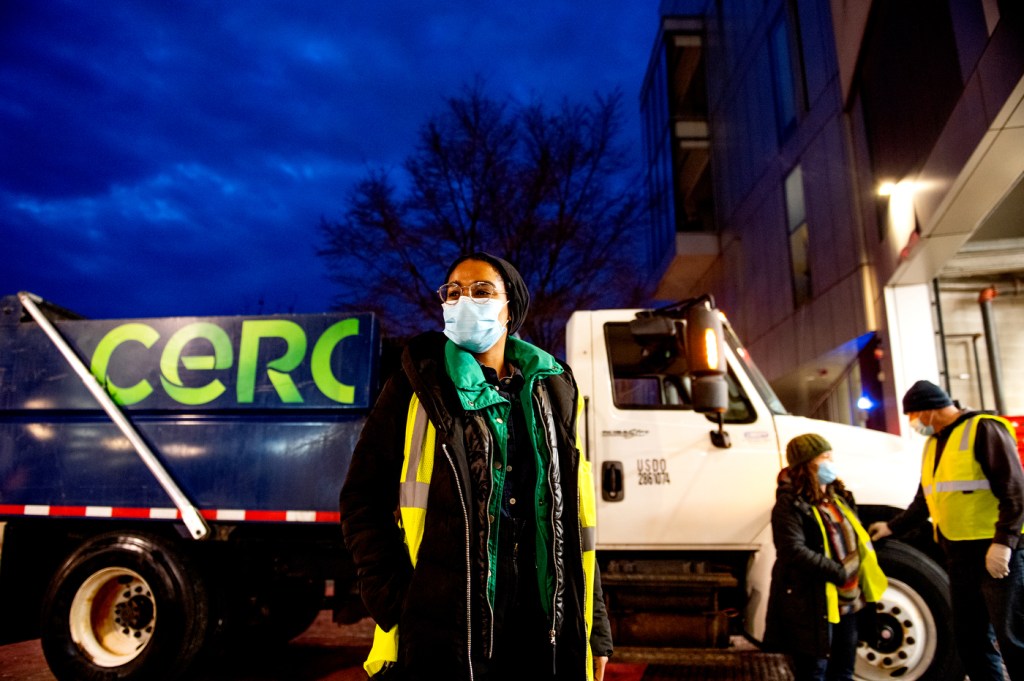
Maya Gaul’s fond memories of Northeastern’s Boston campus stretch all the way back to childhood. She recalls playing tennis at Carter Field, grabbing snacks at the Curry Student Center, and meeting up with her mother who worked at the nearby Carter School.
Now Gaul is happy to be back on the 67-acre campus in another role, working with a neighborhood-focused composting company recently tasked with expanding Northeastern’s earth-friendly food waste program.
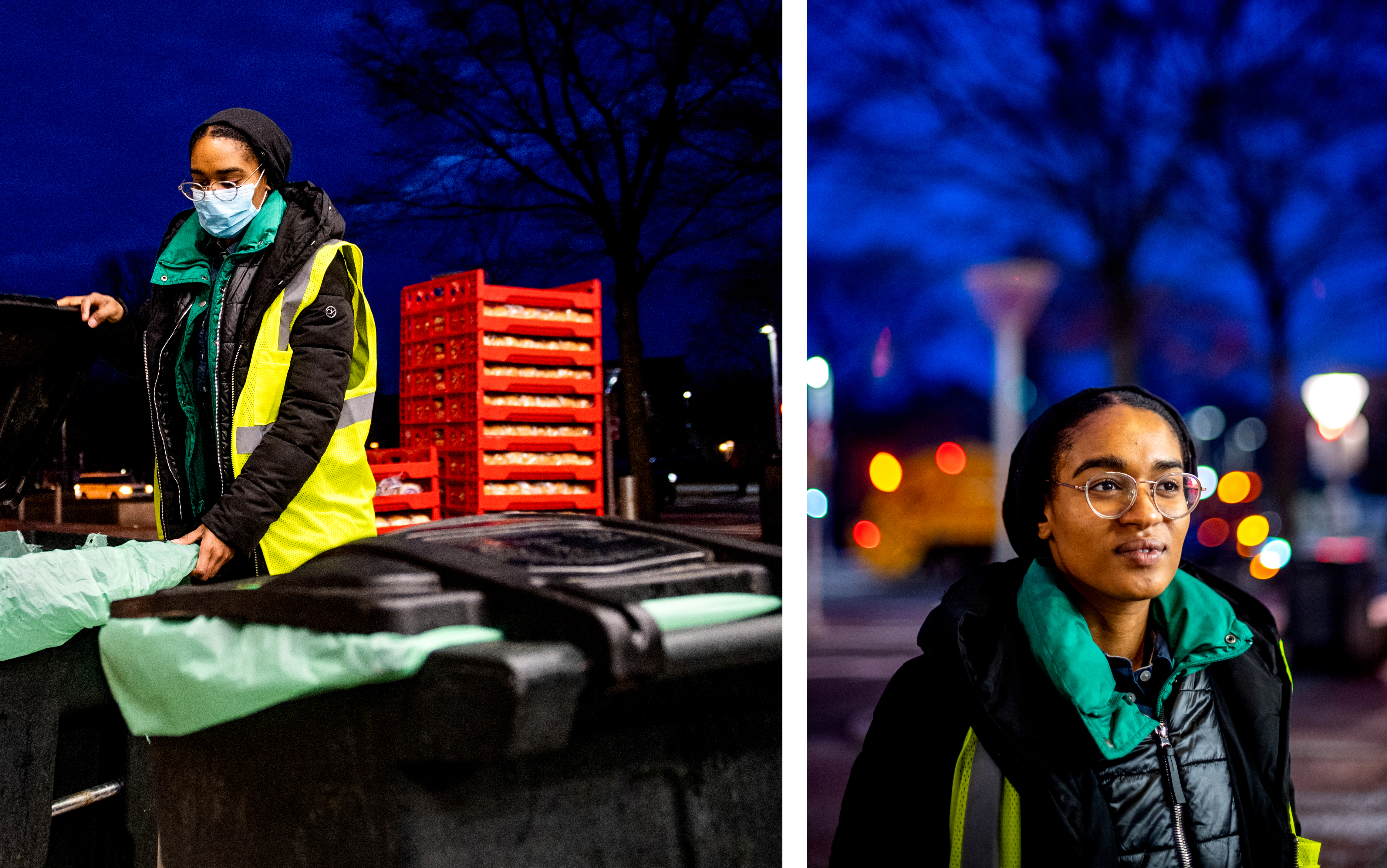
“I was already familiar with the campus, and so it really is an amazing full circle,” says Gaul, a sales manager at CERO.
The company’s name stands for Cooperative Energy, Recycling, and Organics, and Gaul said the eight-person team aims to incorporate composting into all aspects of campus life.
“We want it to become second nature and a part of the campus culture,” says Gaul. She is working on plans to set up an information table where students not only learn about the benefits of composting, but see the food grown and energy saved as a result of their work.
The company isn’t new to Northeastern. CERO has picked up some of the university’s composting since 2015. But its new two-year contract is part of a recent push to expand Northeastern’s broad sustainability action plan, which has included composting bins at all four dining halls since 2010.
Jack Malone, senior director of facilities services, says CERO’s Roxbury location and local employee base gave it a leg up against other companies vying for the composting contract.
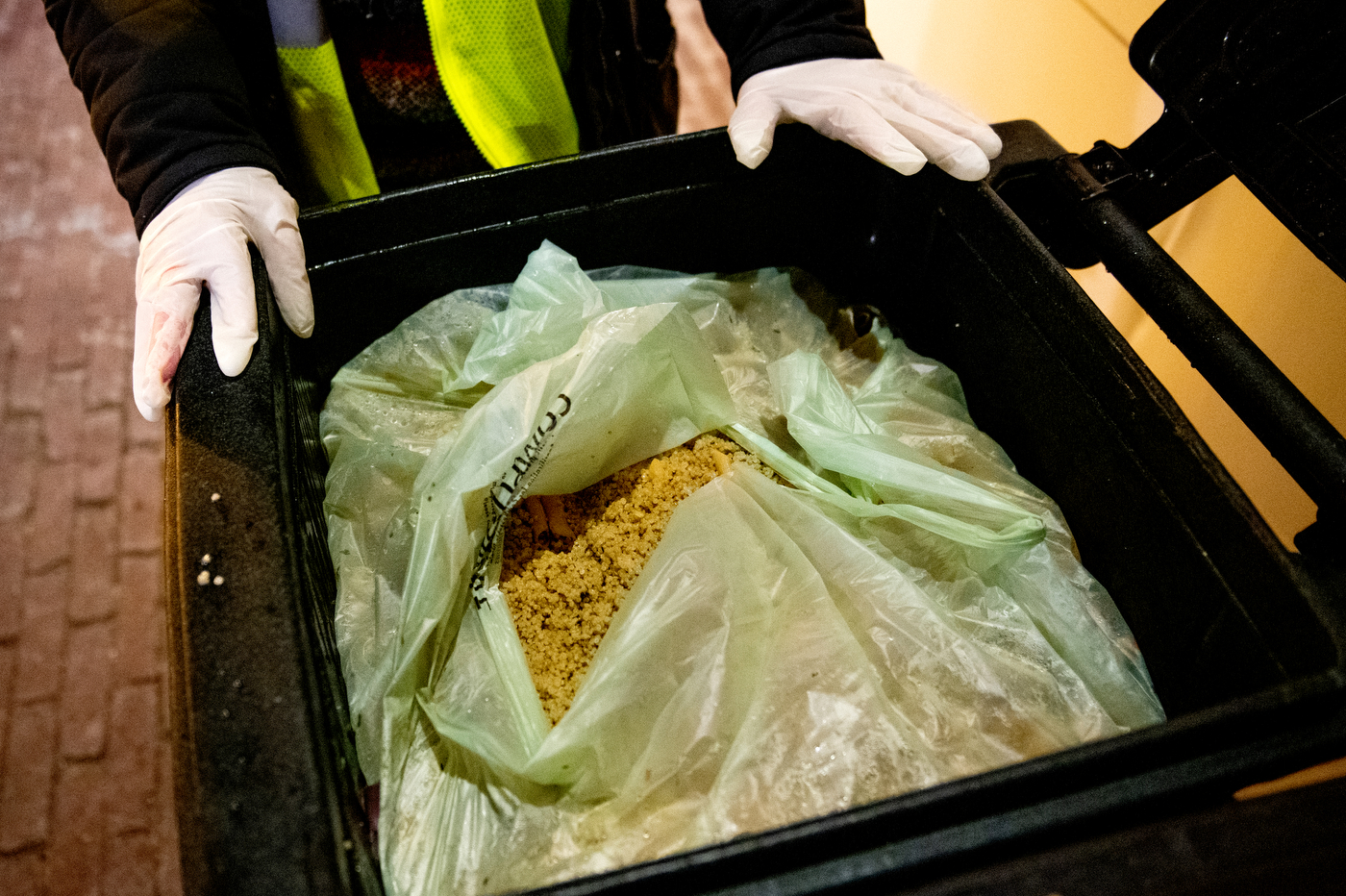
Josefina Luna, one of CERO Cooperative founders, collects food waste outside International Village. Photo by Matthew Modoono/Northeastern University
“Whenever we can take advantage of a local company, we want to do that,” says Malone.
“We want to make sure the university has good, strong competitive pricing and successful partnerships with local companies,” he says.
Josefina Luna, a Dorchester resident, helped start CERO with her neighbors nearly a decade ago. On a recent Tuesday morning she, Gaul and another CERO employee arrived outside International Village residence hall before sunrise to help pick up waste. Luna quickly eyed the material that had been disposed of in each bin, wiped the bins down after they were emptied, and replaced the compostable bag inside.
Knowing what’s acceptable for compost collection is a skill that takes practice. Anytime CERO begins collecting compost at a new location, Luna and others at CERO train the employees at that location to ensure they throw only compostable materials into the bins.
“Some places take a long time to train, some places take a short time,” says Luna, adding that Northeastern’s employees did “pretty good.”
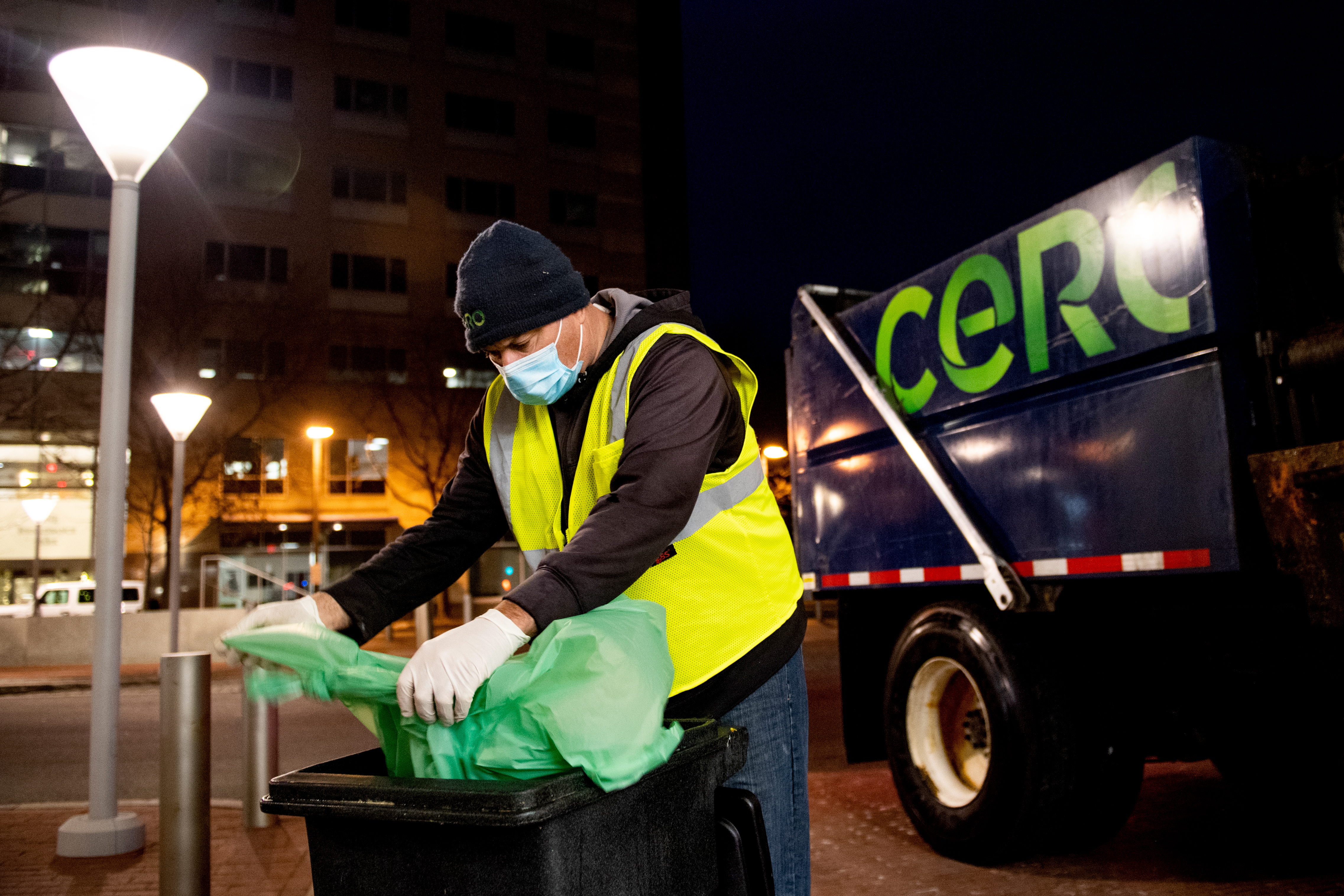
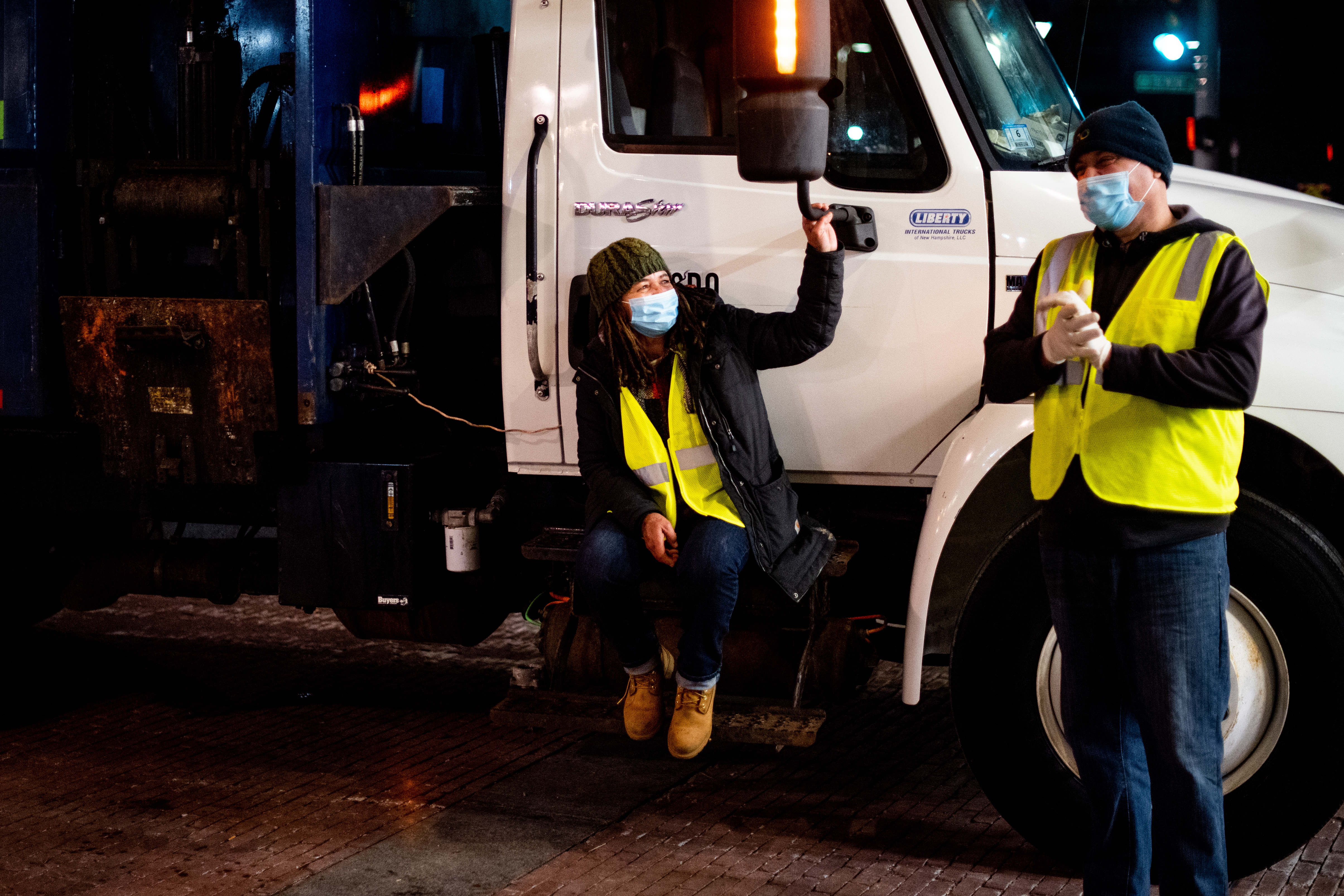
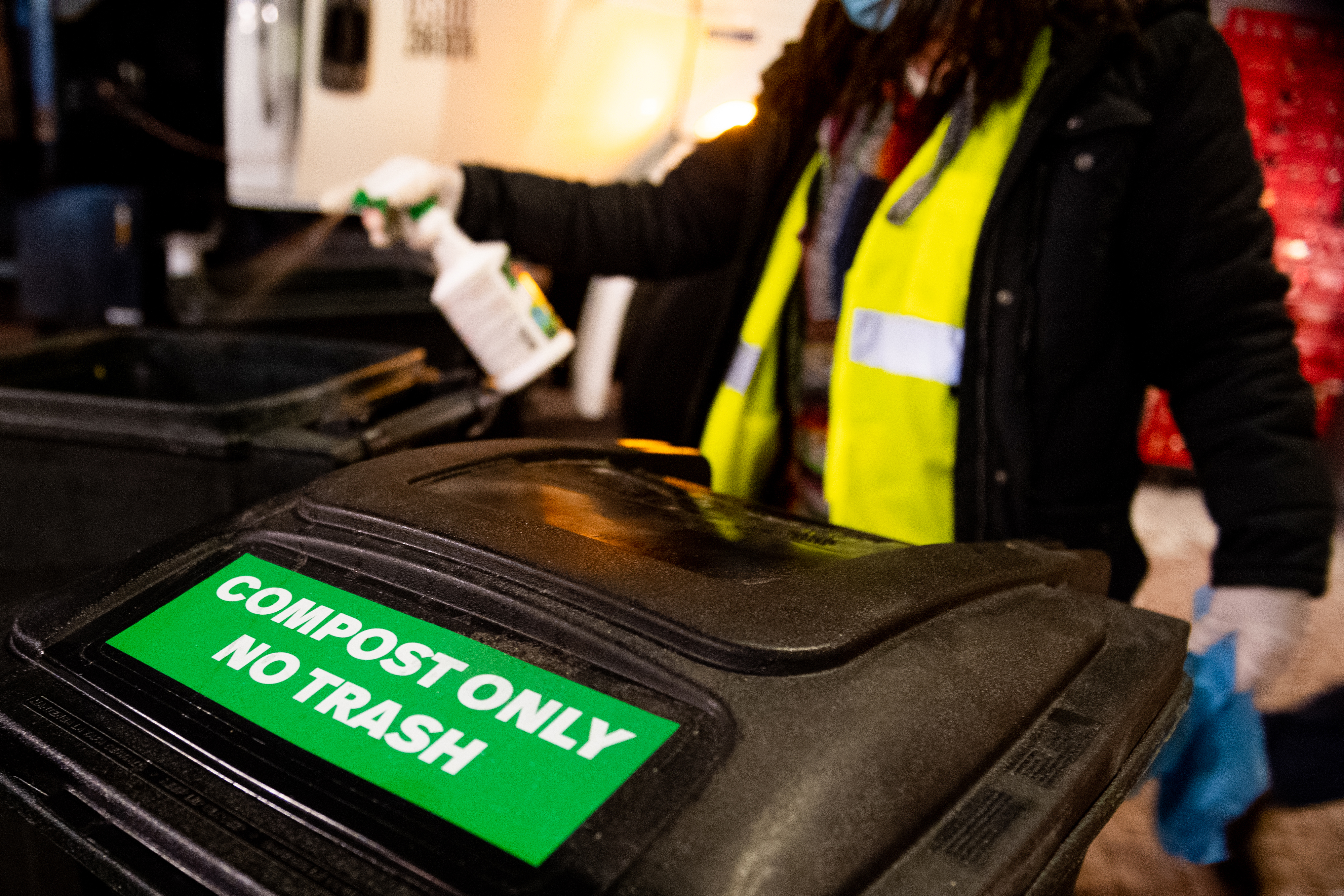
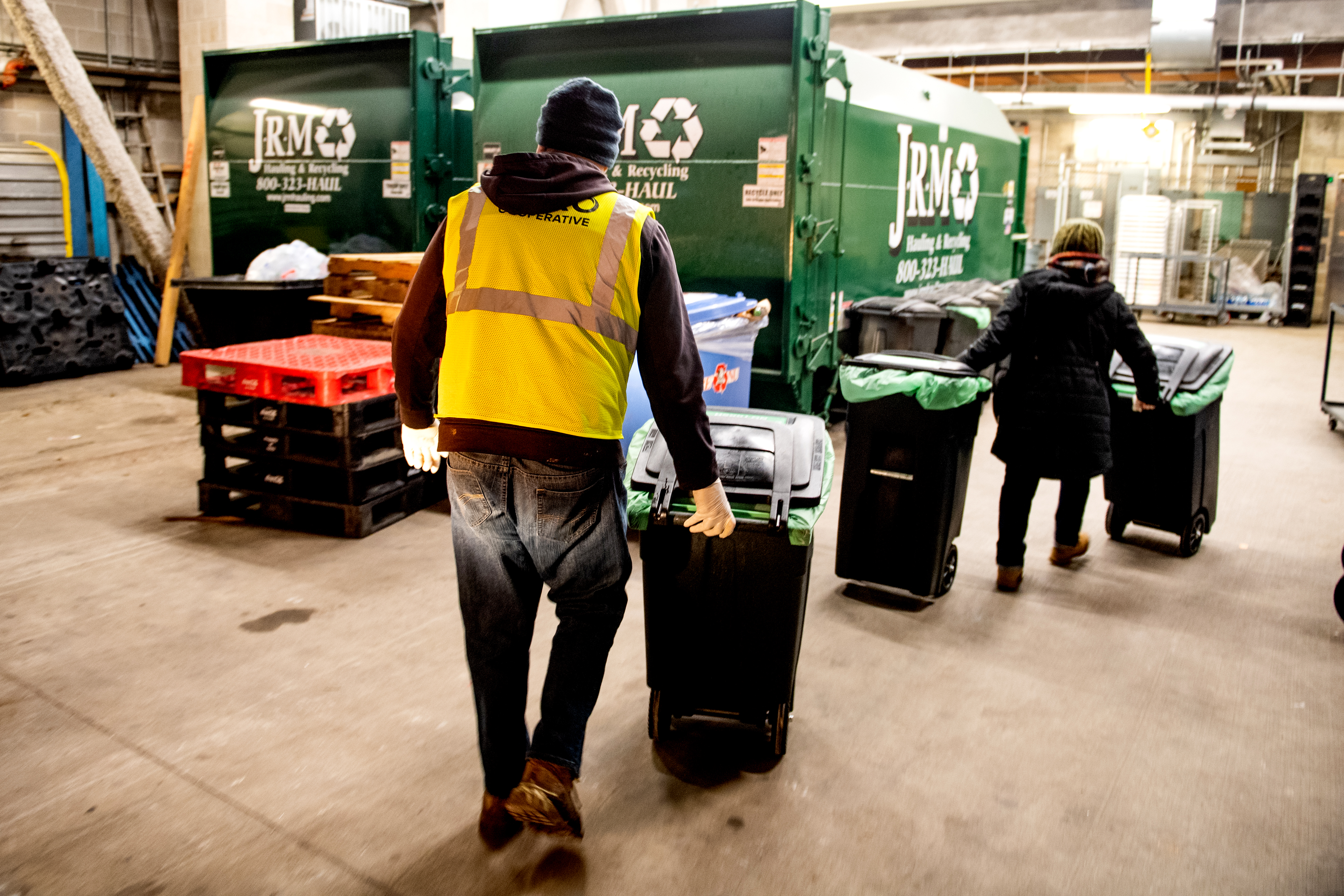
CERO takes whatever food waste is collected to local farms, which either practice traditional composting and turn the waste into soil, or use a system that captures the gas released by the food waste and uses that for energy, says Gaul.
Northeastern collected 810 tons of food waste in 2017, along with 233 tons of landscape waste for composting. With the new contract, Gaul hopes to not only turbo-charge the amount collected but also teach Northeastern students and help them develop a composting practice.
“I’m seeking to share the story of what it means to return this food to the earth,” says Gaul. “People have to change their behavior to battle climate change, and composting can really help.”
For media inquiries, please contact media@northeastern.edu.





